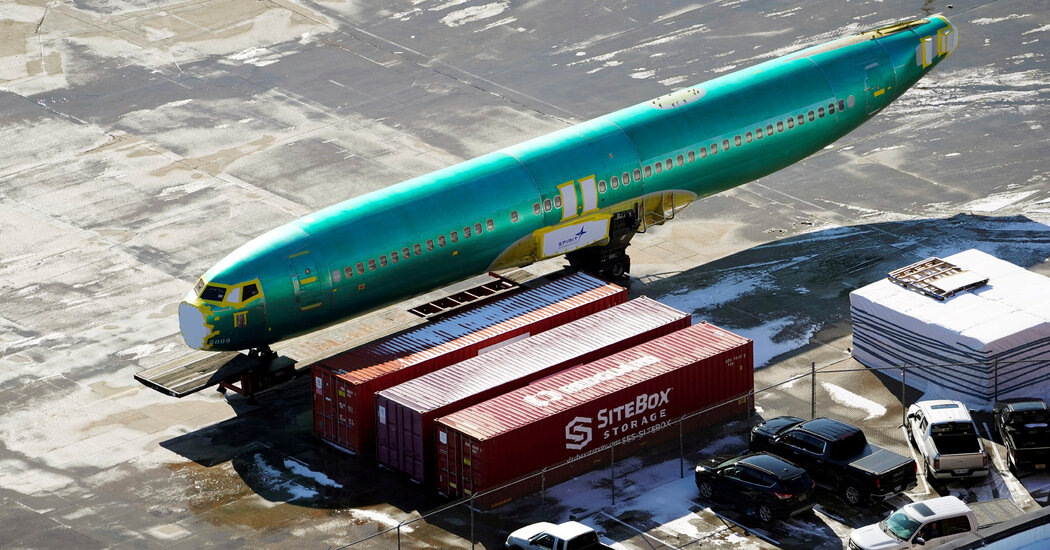Boeing said on Monday that it had agreed to buy a major supplier, Spirit AeroSystems, ending a nearly two-decade experiment in outsourcing production of major components of its commercial planes, including the body of the 737 Max and parts of the 767, 777 and 787.
In buying Spirit, Boeing hopes to stem quality problems that have plagued the supplier in recent years. While it already has significant influence over Spirit, Boeing will more easily be able to monitor and change production practices by owning the business outright. Boeing has taken internal steps to improve quality, too, after a harrowing incident in which a panel blew out of one of its planes on a flight in January.
“By reintegrating Spirit,” Boeing’s chief executive, Dave Calhoun, said in a statement, the company “can fully align” its production and safety systems with its work force.
The deal, which was widely expected, was valued at $4.7 billion in stock or $8.3 billion including Spirit’s debt. It must be approved by regulators and Spirit’s shareholders to be completed. Boeing will also spin off portions of Spirit to Airbus, its European rival, as part of the transaction. Boeing said its acquisition of Spirit is expected to close by the middle of next year.
The purchase represents a strategic reversal for Boeing, which started relying more extensively on independent suppliers in the 2000s to cut costs and raise profits. Spirit was created during that outsourcing drive in 2005, when Boeing sold a division in Wichita, Kan., and operations in Oklahoma.
Besides its work for Boeing, Spirit makes components for aerospace companies including Airbus, Bombardier, Lockheed Martin, Northrop Grumman and Rolls-Royce. Boeing accounted for 64 percent of Spirit’s net revenue last year, while Airbus accounted for 19 percent. Boeing offered to buy Spirit at $37.25 per share, a 30 percent premium over Spirit’s stock price at the end of February before the two companies announced they were in talks.
Spirit’s quality problems led to a leadership shake-up last fall in which Patrick Shanahan, a former Boeing executive and a former senior Defense Department official, became chief executive. At Boeing, Mr. Shanahan was regarded as an accomplished executive who could quickly turn around troubled programs or units. He is now a leading candidate to replace Mr. Calhoun, who plans to step down by the end of this year.
But Boeing has its own quality problems. The company has faced intense scrutiny since…
Click Here to Read the Full Original Article at NYT > Travel…
